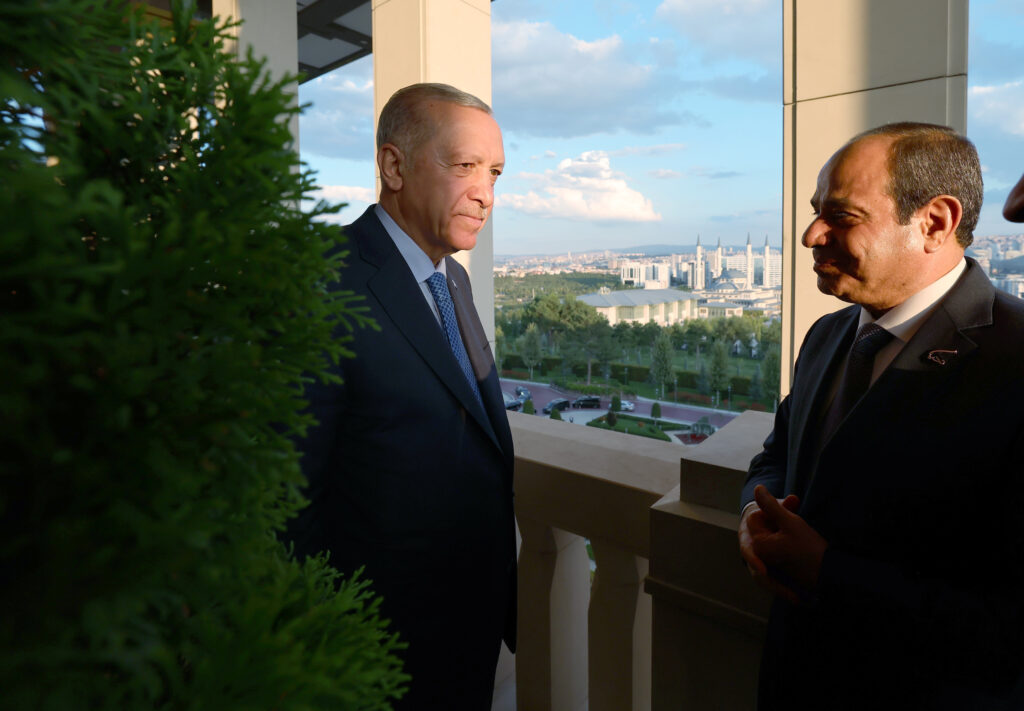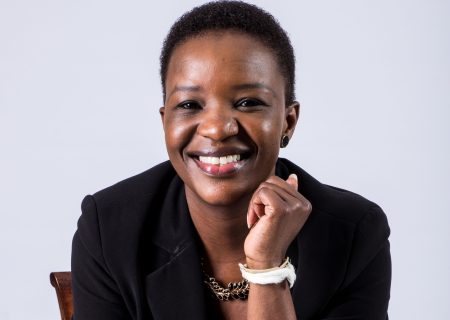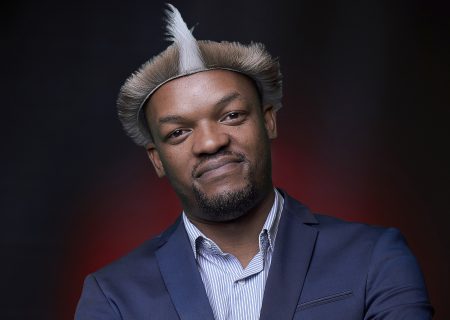You can also listen to this podcast on iono.fm here.
JIMMY MOYAHA: The first of the companies that gave us results that we’ll be reflecting on today was the FirstRand business. They gave us their results for the financial year ended June 2024.
I have the privilege of speaking to the new FirstRand CEO, Mary Vilakazi, about the numbers as we try to make sense of the performance.
Good evening, Mary. Lovely to speak to you again. Your first reflections as a CEO?
MARY VILAKAZI: I think for the past year the business has delivered incredible results, given the difficult macroeconomic environment we’ve had to navigate – and given the challenges that our UK subsidiary faces with the review that’s happening in the finance sector; we’ve had to set aside a very big provision.
So if I look at the earnings that we’ve delivered being up 4%, I think, in an environment where we’ve seen such a steep increase in retail credit impairments and all these other headwinds that I’ve explained, we feel pretty good about the outcome that we’ve been able to deliver at that 4% earnings, particularly because our return on equity is at 20.3% within a stated range of 18% to 22%.
And pleasingly we were able to increase the dividend to our shareholders by 8%.
And if I strip out the impact of the provision and look at operational performance, our franchises really did well to deliver earnings growth of 10%, up for the year.
JIMMY MOYAHA: Mary, when we look at those numbers in greater detail – and I’m just looking at some of the headline figures and actually any real metric that you use to measure the performance of the business – the theme that comes through is a lot about consistency and discipline. What’s the secret cocktail in a climate where the consumer is constrained and you’ve got such a wide operation globally as well? How do you balance the discipline to achieve this level of consistency?
MARY VILAKAZI: I think we have well-established frameworks. We often talk about that.
Basically the frameworks that guide how we utilise financial resources – we call them FRM [financial risk management] – those disciplines are really well embedded in the businesses.
So I suppose you need the people who are going to make sure they use the frameworks and are sufficiently discerning and make the right decisions. I think it’s not just the frameworks and the tools that make it happen; I guess it is also the experience we have in the business.
[As for] the consistency part, I think a lot of the decisions you make in banking you have to see through different cycles. I think this consistency comes from us making calls that sometimes are quite different from what our peers are making.
And I guess when we’ve got the convictions, [we] see them through.
We have an approach that we’ve taken around how we manage our endowment; that in this particular financial year comes at an opportunity cost of about R1.5 billion.
It’s actually a strategy that delivered well for shareholders when rates were low, so we don’t look at it and say, okay, we’ll abandon it just because we don’t like the outcome now, [thus] our ability to stick through with our calls.
And another strategic call that I can point out is our decision in 2021 post Covid, when we started lending again outside our customer base. We made a decision to pull back from high-risk customers and focus on low- to medium-risk customers.
Because, remember, high-risk customers – if I come in and I have a high-risk profile, the bank can still lend you money; they just price you up. But we decided to forego that margin from high-risk customers.
And that strategy to stick with low- to medium-risk customers who have the capacity to [borrow], I think has held us in good stead.
As much as the impairments are up significantly in this period, I think had we not had that strategy the experience would [have been] a lot more adverse.
What that has allowed us to do is to continue lending, so we haven’t been in and out of the market. We’ve consistently just stuck to our appetite.
What has happened over the last two years or 18 months or so, with rates being high and inflation high as well, is that we saw reduced affordability. Customers did not have the [same] level of affordability, as much as they are low- or medium-risk customers. So I think we saw a reduction in the loans – not because we’ve necessarily cut [our] appetite, but just because of affordability pressures.
And of course where we see concerning trends emerge – as we are seeing with these debt review processes – we do respond appropriately.
But overall I think we’ve stuck with supporting our clients during this challenging period. What we did not foresee is for rates to be at this high level for such a long period. But I think, given how the cycle is playing out, we are still reasonably confident and comfortable with the credit decisions we have made.
JIMMY MOYAHA: Mary, you touched on the UK business at the start of our conversation, and obviously a R3.3 billion provision is no small amount. Take me through what’s happening there with the business, why the provision has been raised. Is it a once-off provision? Are there other things you’re kind of concerned about there? Just give me a bit more colour there, please.
MARY VILAKAZI: The provision relates to I guess the uncertainty we are facing in the UK.
We are waiting clarity from the UK’s FCA [Financial Conduct Authority]; the FCA is basically the conduct regulator in the UK.
They announced that they were going to be looking at the motor finance sector in January this year, and they appointed what they called a ‘skilled person’ to review the practices of the sector.
Now, in 2021 the FCA had reviewed the practices of the sector and at the time they said, okay, they were going forward [and] the use of discretionary commission practices should be taken away.
This is where the dealer has the ability to flex the interest rate for the deal that they get into [with] the customer. So basically at the time they said this practice might result in ‘consumer detriment’.
Like Australia, they looked at it and said, okay, going forward we no longer will permit this. In WesBank in South Africa we also followed suit, even though in the market in South Africa that practice still exists. So that’s really the origin of this.
And when the FCA ruling came out, and coming up with new regulations that are forward-looking, some consumers then sat back and said, okay, does this mean that I had a worse deal before these regulations?
We’ve seen a lot of legal activity that has come about since then. We’ve also taken a lot of these cases to court, and I think the court found in our favour in more than 70% of the cases. So, Jimmy, I think it’s quite a complex matter.
We have to just allow the FCA process, I think, to bring it to a conclusion. Their intervention was really helpful because I think there were legal cases all over the place, and that also is not sustainable.
So we welcome this review. It is quite a sizeable amount of money that we’ve set aside in rands and in pound terms, and hopefully there’ll be more clarity in the next year and we don’t actually have to utilise it. We think it’s a conservatively struck provision.
JIMMY MOYAHA: Very conservative approach towards managing a business. Mary, I want to look at the NII, the ‘net interest income’ side of the business. That’s a huge component of the business, and there was quite a bit in today’s Sens announcement around how you think through that part of the business and the methodology in that. You touched on this to say that interest rates haven’t exactly gone according to plan the way you had initially mapped them out. How is that influencing your strategy when it comes to NII, understanding that we could potentially be in for interest rate cuts as early as next week?
MARY VILAKAZI: Yes. For this past financial year, NII was up 10%, and I mentioned earlier on that we have an ALM [asset and liability management] strategy which we know through the cycle has created value for our shareholders.
But in this particular year it came as an opportunity cost, because rates were higher than where, let me just loosely say, we had hedged.
So when rates come down, obviously that strategy is helping us on the parts that we have hedged. This year I think we say NII is up 10%, but it would’ve been 13.5% higher.
And as we look forward to a cycle where rates are coming down, as I said, we are going to have support from the part of the endowment that we’ve hedged.
But the part of the endowment where we haven’t hedged – NII is going to come down.
But we also see that our book mix, our portfolio mix, is tilting more towards corporate and commercial. I guess when we do those infrastructure deals, they are generally a lower-margin business than a retail-heavy strategy. So that’s also just part of some of our NII softening, which we guided looking forward will come through.
But I think we have seen healthy growth in deposit franchises and we are still looking forward to the year, even though retail is under pressure, I think there are still pockets where we are able to lend.
So hopefully we get a bit more support than perhaps what seemed to be an overly cautious outlook at the beginning of the year.
But we are expecting to see rate cuts start to come through hopefully at the September and the November meetings of the Sarb [South African Reserve Bank] – and I think another one early next year.
So all of that should bring some relief to consumers and households, although even with three cuts of 25 basis points, or just 75 basis points, the repo rate will be at 7.5%.
I think, Jimmy, it’s quite important to remember that that is still much higher than the pre-pandemic levels. I think the consumer is not completely out of the woods, but I think [there is] more relief.
JIMMY MOYAHA: Speaking of relief, Mary, you and I caught up in October last year when you were announced as the CEO. We spoke about a variety of things, including kind of the culture taking over from Alan [Pullinger] and your responsibilities and your ideas going forward. How are you feeling at this point? Are you feeling relieved that the transition has been smooth and seamless, and are you settled in quite nicely?
MARY VILAKAZI: Yes. I think earlier on when I wrote to employees I commended them for not having lost any momentum, and I think that my second half of the year performance was particularly good.
I said that is only ever an outcome of when everybody pulls together, I think, to make all the kind of leadership transitions the business has had to contend with.
And I think the outcome really is that of a seamless handing over of the baton.
I told the leadership team they do deserve a podium performance for how well the transitions have been managed.
So, Jimmy, I’m feeling quite comfortable and really, I suppose, excited about the prospects of what South Africa in particular can offer in the years ahead.
Read: FirstRand banks on SA as it sits on excess capital
JIMMY MOYAHA: A strong performance, but an even stronger team behind that performance. It’s quite a lovely story to tell.
I think we’ll leave it at that for now, Mary. We wish you the best of luck into the new financial year, and we will certainly catch up as the year goes on.
That was Mary Vilakazi, CEO at FirstRand, reflecting on the group’s numbers and the performance for the 2024 year.
Follow Moneyweb’s in-depth finance and business news on WhatsApp here.






















COMMENTS 0
You must be signed in to comment.
SIGN IN SUBSCRIBE
or create a free account.
Free users can leave 4 comments per month.
Subscribers can leave unlimited comments via our website and app.